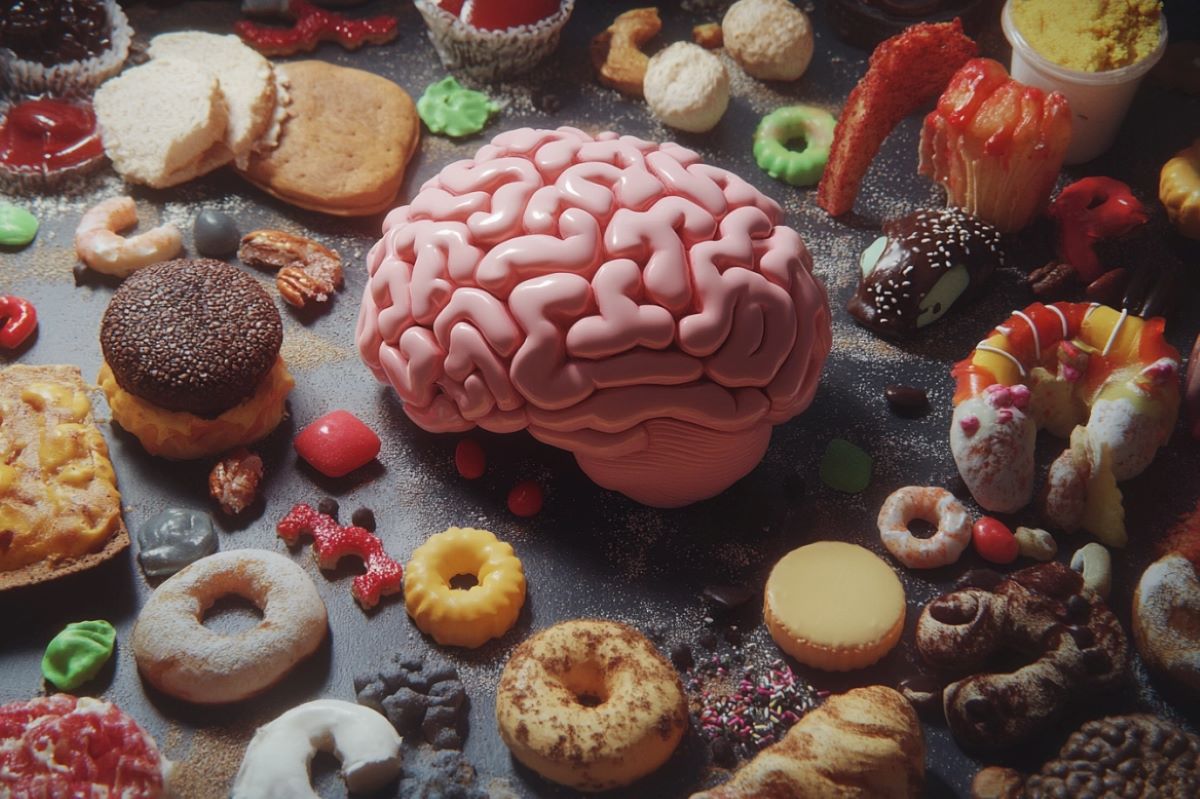Summary: A new study reveals that a high-fat diet alone does not appear to be responsible for changes in brain neurons that regulate appetite and energy balance. Researchers found no immediate effect on neurons in the hypothalamus of mice fed a high-fat, low-sugar diet, suggesting that other nutrients like sugar may play a more significant role in altering brain function.
The study challenges previous assumptions that fat alone was responsible for disrupting energy homeostasis and increasing the risk of metabolic diseases. Future research will explore how different macronutrients affect brain neurons and appetite regulation.
Key facts:
- A high-fat diet alone did not affect AgRP neurons in the hypothalamus.
- Other nutrients, such as sugar, may have a more profound impact on brain function.
- Both male and female mice showed no decrease in neuron connectivity after 48 hours on the diet.
Source: DZD
A high-fat diet can promote overweight and increase the risk of metabolic diseases, such as diabetes. In mice brains, this leads to measurable changes in the region of the hypothalamus.
However, fat alone does not appear to be responsible for this, as reported by a research team from the German Institute of Human Nutrition Potsdam-Rehbruecke (DIfE) and the German Center for Diabetes Research (DZD) in the specialist journal Scientific Reports.

The connections between neurons in the brain are constantly changing. Diet has a significant influence on this. It is now known that a high-fat diet can cause changes in the hypothalamus that disrupt energy homeostasis and can increase the risk of metabolic diseases.
Food intake is predominantly regulated within the brain by two types of neurons: AgRP (Agouti-related peptide) and POMC (proopiomelanocortin) neurons. Both are primarily found in the hypothalamus—or more precisely, in the paraventricular nucleus, a core region of the hypothalamus—and have opposite actions. POMC neurons inhibit food intake, while AgRP neurons promote it.
Fat or Rather Sugar?
Previous research showed that AgRP neuron activity in the paraventricular nucleus decreases in mice that are fed a high-fat diet. This was mostly attributed to the high fat content of the diet given to the animals.
However, the food of the studied mice also contained other nutrients, including sugar. It therefore cannot be said with certainty which macronutrient is responsible for the neuronal changes.
The researchers from DIfE and DZD investigated whether it is primarily fat that causes changes in the brain. They fed male and female mice a high-fat and low-sugar diet for 48 hours.
It was important for the researchers to study both male and female mice, as previous studies had often only used males. As a result, it was unclear whether the two sexes respond differently to a high-fat diet.
Other Nutrients of Greater Significance
The examination of the animal brains produced an unexpected result: An effect of the high-fat diet was not identified. The connectivity of AgRP neurons had not decreased in either female or male mice.
This suggests that it is not dietary fat (alone) that is responsible for the previously observed changes in the hypothalamus. The researchers suspect that other macronutrients, such as sugar, have more profound effects on AgRP neurons.
They now want to conduct further studies to explore the role of individual macronutrients on neuroanatomical and functional changes in the brain.
About this appetite and neuroscience research news
Author: Birgit Niesing
Source: DZD
Contact: Birgit Niesing – DZD
Image: The image is credited to Neuroscience News
Original Research: Open access.
“Acute elevated dietary fat alone is not sufficient to decrease AgRP projections in the paraventricular nucleus of the hypothalamus in mice” by Selma Yagoub et al. Scientific Reports
Abstract
Acute elevated dietary fat alone is not sufficient to decrease AgRP projections in the paraventricular nucleus of the hypothalamus in mice
Within the brain, the connections between neurons are constantly changing in response to environmental stimuli. A prime environmental regulator of neuronal activity is diet, and previous work has highlighted changes in hypothalamic connections in response to diets high in dietary fat and elevated sucrose.
We sought to determine if the change in hypothalamic neuronal connections was driven primarily by an elevation in dietary fat alone. Analysis was performed in both male and female animals.
We measured Agouti-related peptide (AgRP) neuropeptide and Synaptophysin markers in the paraventricular nucleus of the hypothalamus (PVH) in response to an acute 48 h high fat diet challenge.
Using two image analysis methods described in previous studies, an effect of a high fat diet on AgRP neuronal projections in the PVH of male or female mice was not identified.
These results suggest that it may not be dietary fat alone that is responsible for the previously published alterations in hypothalamic connections.
Future work should focus on deciphering the role of individual macronutrients on neuroanatomical and functional changes.







